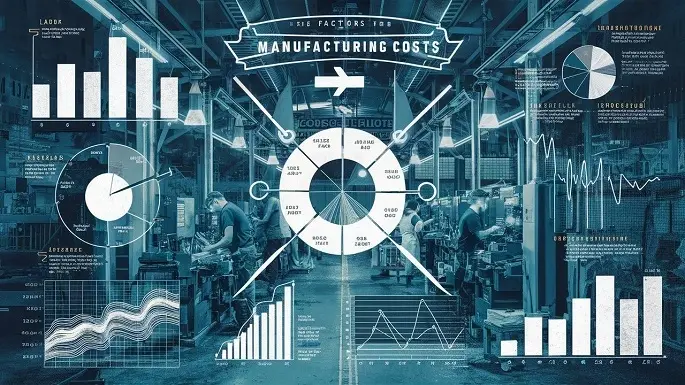Manufacturing costs are the costs incurred in the process of transforming raw materials into finished products through manufacturing processes such as assembly, fabrication, and construction.
Manufacturing cost is the total of the costs that are incurred in making a product in the factory. Manufacturing companies need to have clear and efficient knowledge of the cost of production so that they can be able to fix the right price for their products, also as a way of measuring their revenue and even coming up with the right business decisions that will be beneficial to the company. Based on the information presented in the article, readers will gain a clear understanding of what manufacturing costs are, the importance of their analysis, and various types of costs as well as approaches to their determination.
Manufacturing costs are important because they help a company determine its cost structure and evaluate its performance when competing in the market.
Manufacturing costs directly impact a company's bottom line and competitiveness in several ways:
1. Pricing Decisions: The cost of production, within the manufacturing sector, determines the amount of money that can be charged considering the profit to be made. The following are some of the factors that are important in determining the right price: Knowledge of costs is crucial when setting prices.
2. Profitability Measurement: Division of the manufacturing costs by the selling price will also help companies understand the gross and net profit margin on the products.
3. New Product Decisions: Costs of production include the identification of the approximate cost of the product which can assist the business in determining which new products to introduce to the portfolio.
4. Budgeting: Due to elaborated cost data, expense budgeting, and cost containment throughout the manufacturing process is possible. Expenses incurred in the course of undertaking the activities can be compared to the budgets set.
In conclusion, comprehension of the costs of production is central to any manufacturing business’s financial and managerial decisions.
Types of Manufacturing Costs
Manufacturing costs can be classified into three main categories:
1. Direct Materials Costs: This entails expenses on all the components used in the production of the various products. For instance, wooden furniture, cloth, plastic, and the like.
2. Direct Labor Costs: This is the wages paid to production workers, all supervisors, and inspectors with direct responsibility of turning the raw materials into finished products.
3. Manufacturing Overheads: These are indirect costs of manufacturing products such as factory rent, indirect material such as glue, electrical expense, maintenance, depreciation of production tools, etc.
Manufacturing Cost Calculation Methods
Two main methods exist to accumulate and assign manufacturing costs to units produced:
1. Job Order Costing: Applied when the product is made in small lots and for specific demand from customers such as fashion clothing or footwear. The costs are recorded based on each job or batch charge-wise to cover the complete cost of the product.
- This is because material costs can be attributed or traced with a lot of ease to a particular job.
- Overhead costs involve expenses that cannot be traced directly to any particular job; instead, they are prorated over all jobs.
- The overhead cost is then spread or absorbed depending on the appropriate cost driver.
2. Process Costing: They are suitable for products that are made in large quantities in a production line such as chemicals, consumer goods, etc. The costs are batched across production departments or cost units.
- It is different from process costing because materials and labor cannot be attributed to specific units of output and are distributed evenly.
- Overheads are apportioned to products at a pre-determined overhead rate based on some activity, for example, direct labor hours, machine hours, etc.
Both these methods involve the assignment of indirect overheads with rational keys for absorption. This entails cost control and charge evaluation done by the manager and or organizational professionals.
In Conclusion...
An understanding and computation of different manufacturing costs is relevant to pricing products, evaluating the profit of a business, planning production costs, and making other business decisions for a manufacturing firm. Direct cost may easily be identified and associated with products while assigning indirect overheads requires an understanding of how they should reasonably be allocated for purposes of cost control and tracking of financial performance. Economic considerations are also important in maintaining cost control and having profitability most especially in the manufacturing sectors.



